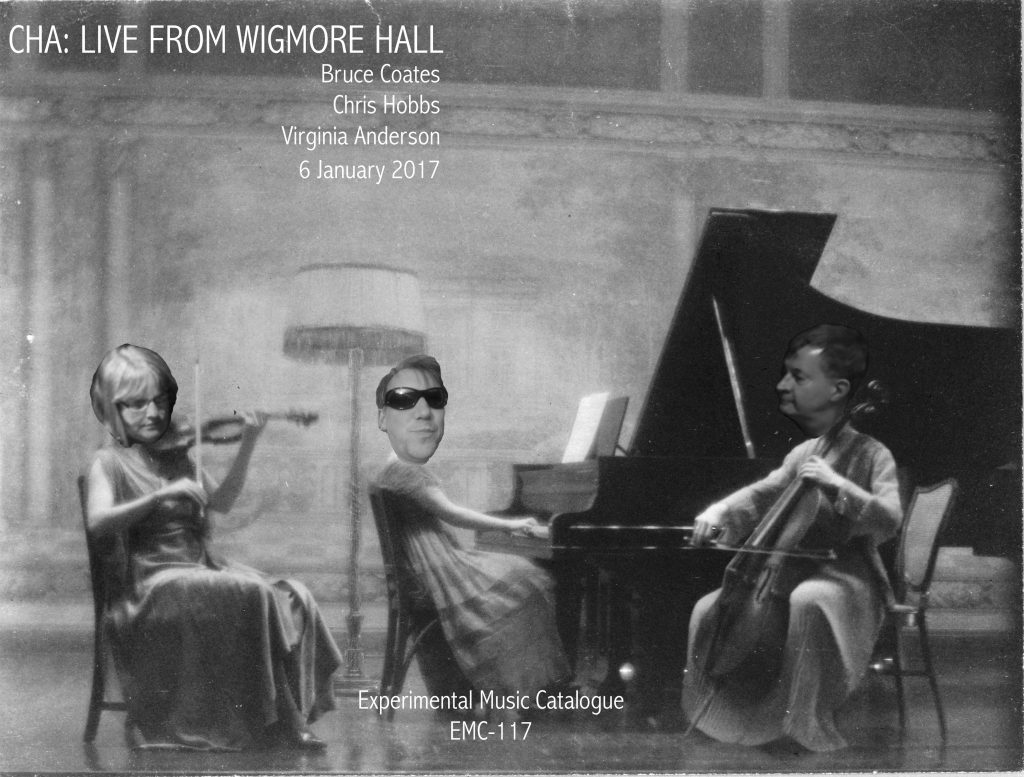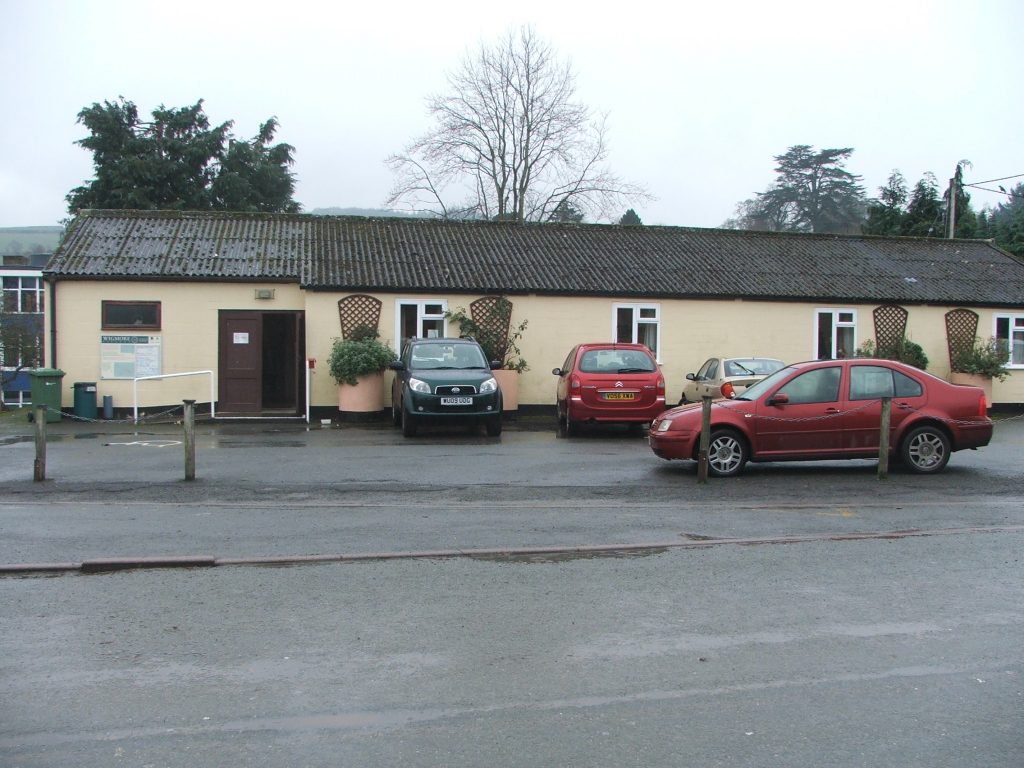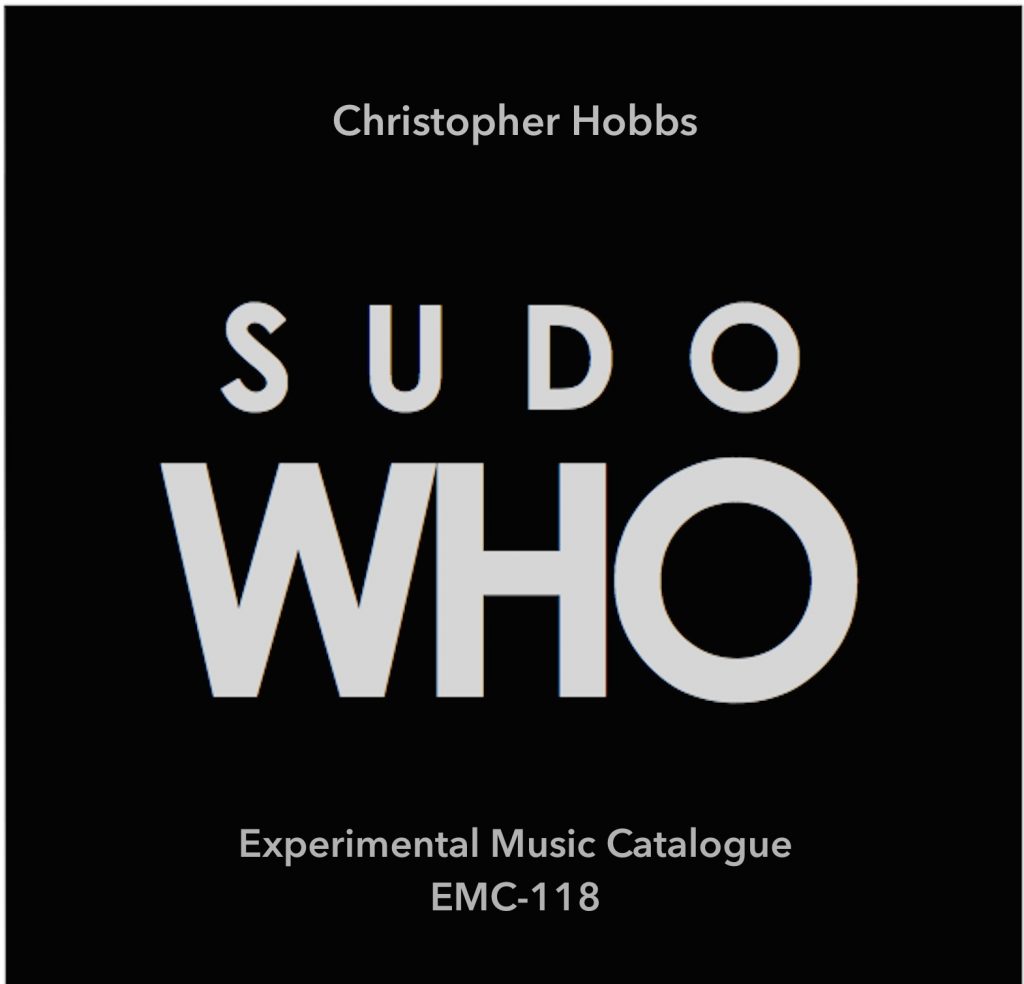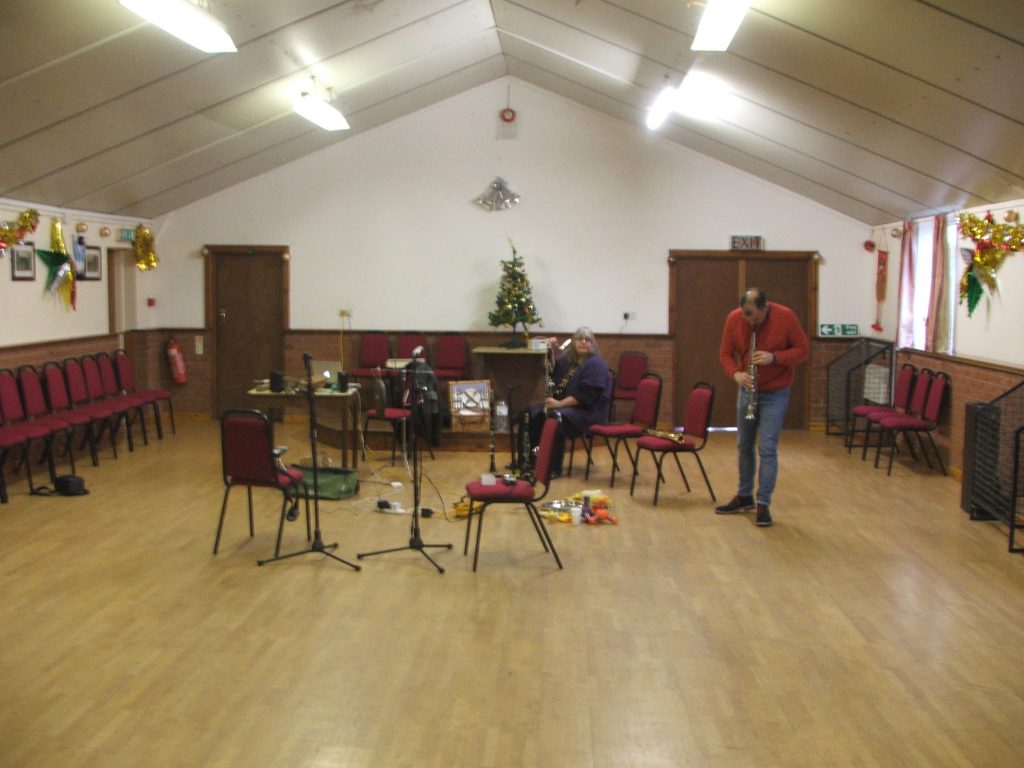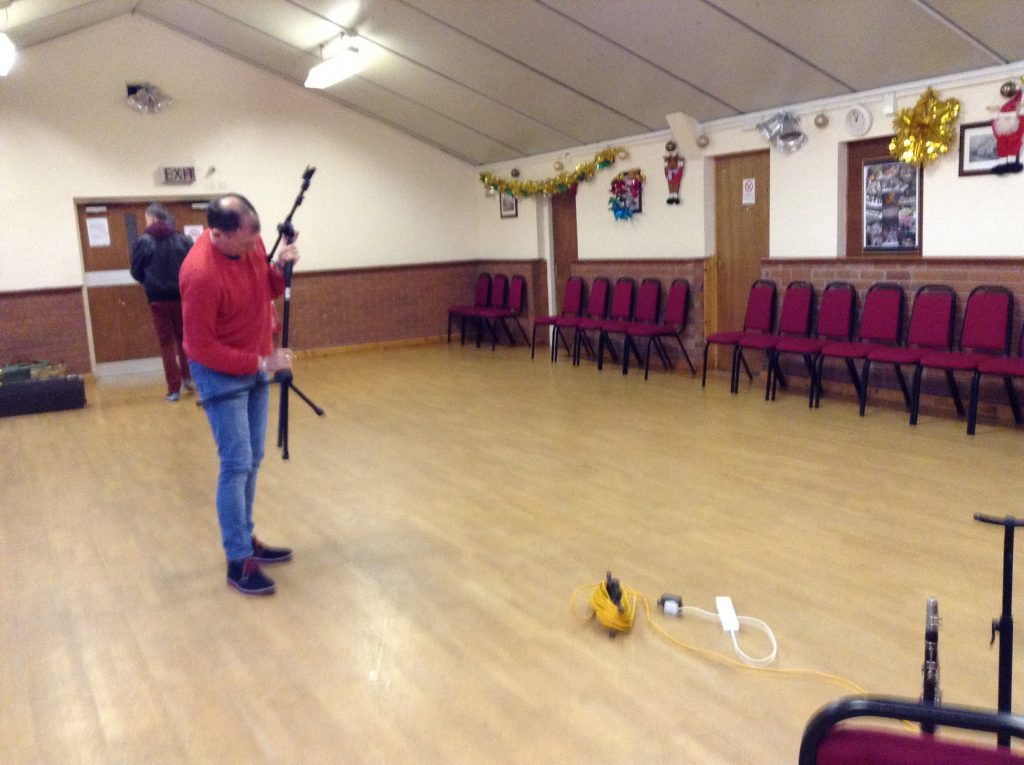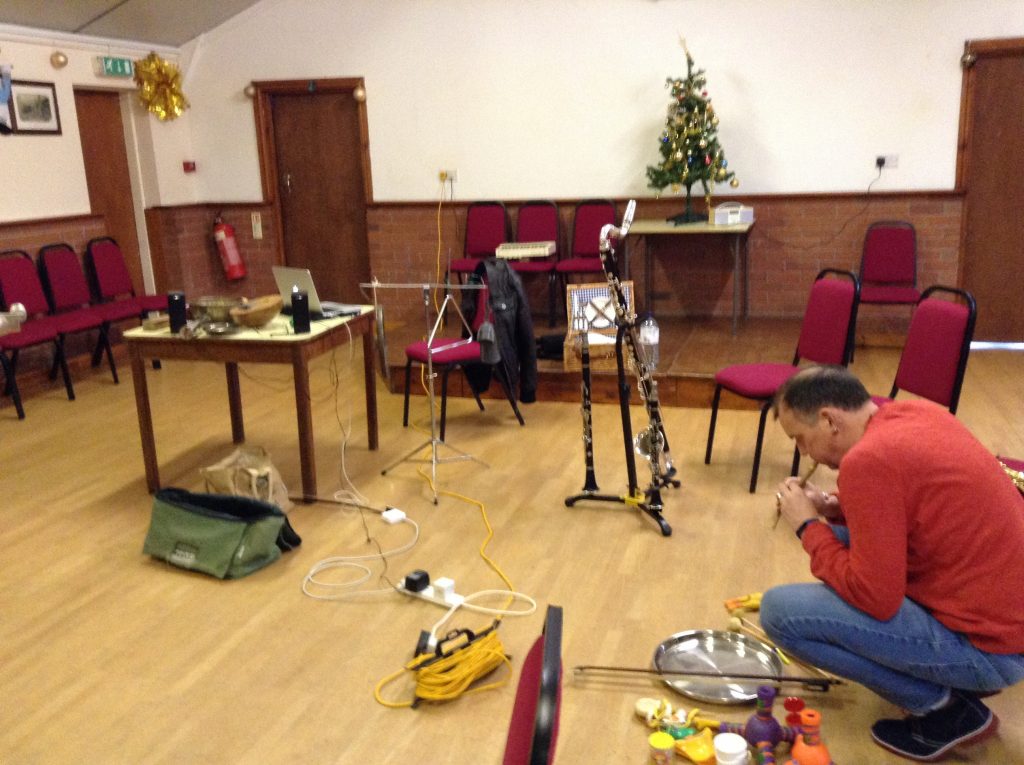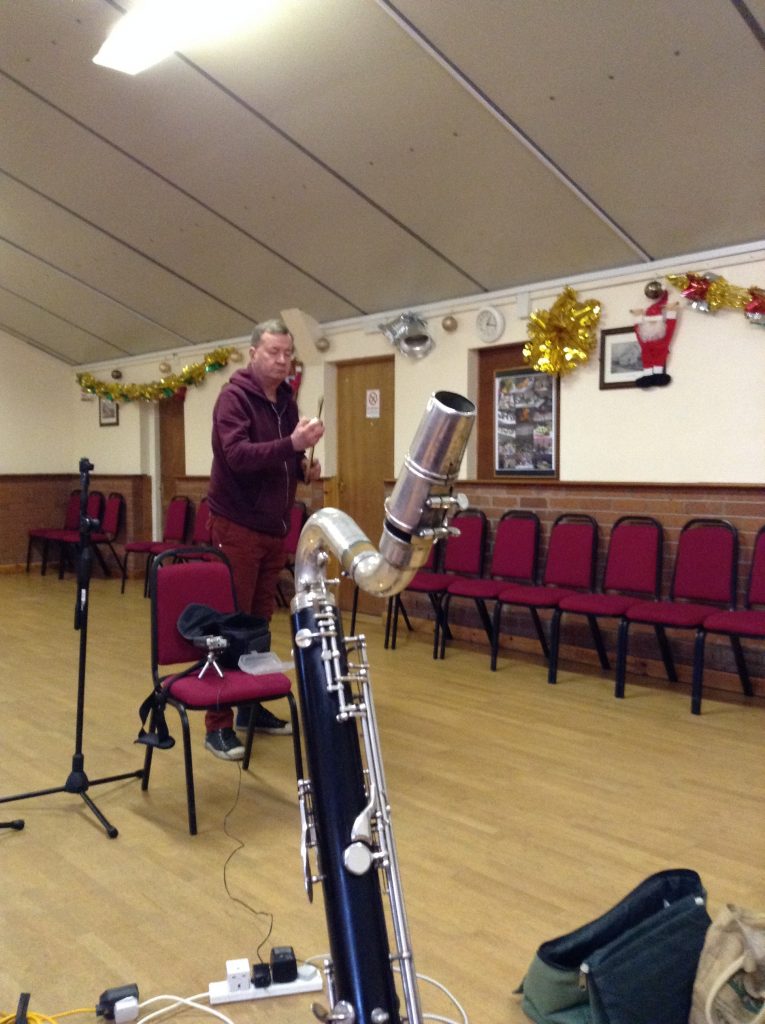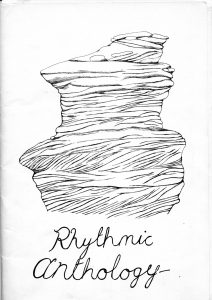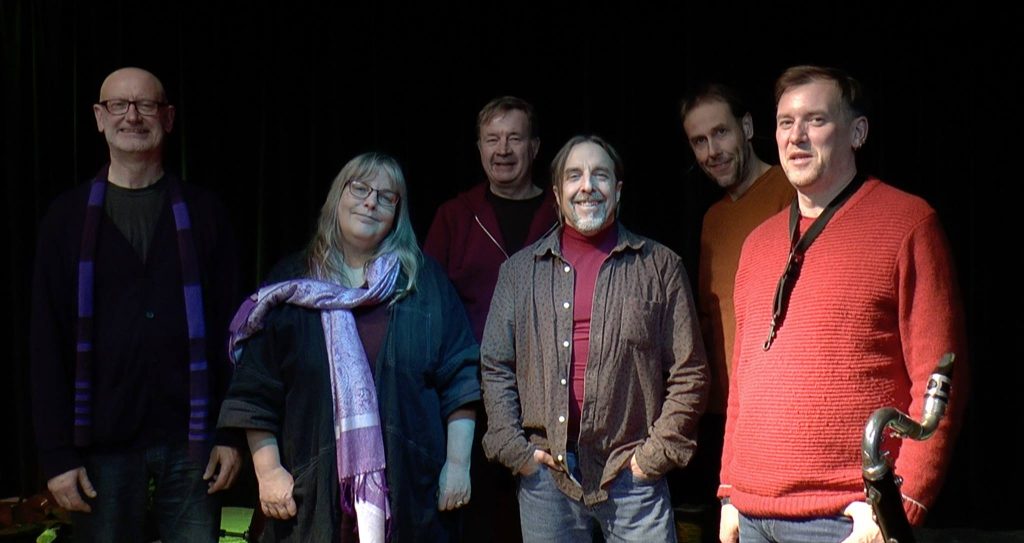CALL FOR PAPERS: EMC² – Remembering the Experimental Music Catalogue
De Montfort University 24-26th March 2017
The Experimental Music Catalogue (EMC) is a unique publication project, founded by the composer Christopher Hobbs in 1968 and shortly thereafter joined by Gavin Bryars and Michael Nyman, to disseminate experimental music (which used indeterminate, Cagean processes, often presented in text or graphic notation) and minimalism. Many of these works were “for all”, requiring performers to be interested and diligent, but not requiring an ability to read common-practice music notation. From its founding until it was closed in the early 1980s, the EMC released works by important international experimental and minimalist composers (including Cornelius Cardew, Terry Jennings, Howard Skempton, Jon Gibson, Christian Wolff, and the open-ended London experimental group the Scratch Orchestra) as individual scores and thematic anthologies (such as the Verbal Anthology, Rhythmic Anthology, Scratch Anthology of Compositions). As a publisher, the EMC was unusual in that all composers kept copyright of their work, and as part of a larger wave in independent published collections (in the US, Soundings and SOURCE magazines, Dick Higgins’ “something else press”; in the UK, Contact magazine), the EMC imprint appears in library holdings throughout the UK, Europe, the Americas and Asia. Although Bryars operated the EMC from his London home, many of the EMC composers and associated performers worked at Leicester Polytechnic, where Bryars was head of music. Leicester Polytechnic became a crucible for new works and classic performances of old works, thus ensuring the East Midlands’ central place in the development of new music in Britain. Christopher Hobbs and Virginia Anderson revived the Experimental Music Catalogue in 1999 as a web-based not-for-profit resource, bringing out classic anthologies, new scores, and more recently, CDs and downloads. The modern EMC is based in Leicester.
In conjunction with De Montfort University, the University of Leicester and Contemporary Music for All (CoMA) East Midlands, we invite paper proposals on the topic of the Experimental Music Catalogue as part of the Arts Council funded festival of practice and analysis, EMC2. Composers within the East Midlands played a huge role in shaping experimental music tropes and strategies of the 1960s and ‘70s both in the UK and beyond. As part of CoMA East Midlands’ 20th anniversary celebrations we are hosting a festival of practice, reflection and research centred upon the Catalogue and its impact. Conference attendees can attend in one of two modes: as conference participants only (talks, plenaries (for both speakers and players) and concert attendance represent an enjoyable package of events) or as speakers and players, participating in the all-comers’ rehearsal events on Saturday and the concert on Sunday afternoon.
The conference will begin on Friday at 12.30pm with registration and first panels at 1.45pm (the all-comers’ taking part all weekend begin rehearsals at 2pm). Concert number one (curated by DMU staff and students) will take place that evening. On Saturday, speakers’ panels are in the morning followed by a plenary with people associated with the EMC (including Christopher Hobbs, Virginia Anderson, Dave Smith and Hugh Shrapnel) and a piano repertoire concert. Speakers’ panels continue in the afternoon followed by an evening concert curated by Christopher Hobbs. If you decide to play with the all-comers’ (this will need to be booked in advance with your conference booking) we will be working on Gavin Bryars’ 1, 2, 1-2-3-4 (1975) and new commissions from the EMC composers. On Sunday, the final speakers’ panels will take place in the morning with rehearsals in parallel and the day concluding after lunch with the final last presenting the new commissions and Bryars’ work. The day will conclude by 4pm.
What we are aiming for is a fun and enlightening integration of activities for all. We also aim to have a publication outlet for academics participating and more information about this will follow in advance of the conference.
Consequently, we invite proposals both broadly on the EMC and its impact but also on specific areas including:
- Underground music publication and experimental music
- The influence of EMC publications on subsequent composers
- The role that indeterminate compositions played in opening music performance to all (to musicians of abilities, all artistic backgrounds, and relevant gender and class balance)
- The Scratch Orchestra
- The intersection between experimental and minimal music
- Performance parameters
- How indeterminate (text) scores are used today
Proposals should be sent in Word or rtf (NOT PDF) format, 250 words long, plus 100 words bio (affiliation, recent work etc…) and ensure your contact details are on the document. Please also indicate if you would wish to play an instrument, what that instrument is and how you would rate your abilities (e.g. Grade or years of experience). If you wish to play, please indicate if you have a preference for the day on which you deliver your paper (i.e. Friday or Sunday). The deadline is January 16th 2017. Proposers will hear back in late January. Send your proposal to Virginia Anderson at emcsystems@me.com and Anna Claydon at coma.east.midlands@gmail.com
The conference fees (payable electronically or by cheque via the booking form available from coma.east.midlands@gmail.com) are:
Conference only (includes conference pack, conference plenary and concert tickets)
Salaried CoMA Member £45
Salaried Non-CoMA Member £50
Student, Non-salaried CoMA Member £25
Student, Non-salaried Non-CoMA Member £30
Partial Conference and Partial Playing (i.e. playing on Saturday, conferencing Friday and Sunday there are extra costs associated with this)
Salaried CoMA Member £55
Salaried Non-CoMA Member £60
Student, Non-salaried CoMA Member £35
Student, Non-salaried Non-CoMA Member £40
For a pdf version of this announcement, download here: CALL FOR PAPERS EMC2 Conference and Festival

